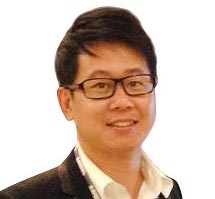
Dr. Qifeng Li
Massachusetts Institute of Technology
Friday, February 17, 2017
11:00AM – HEC 450
Abstract
The alternating current (AC) power flow (PF) equations are the fundamental network models of electric power systems. They exist in many decision-making processes of power systems as the primary network constraints. The ACPF equations are nonlinear, non-convex, and consequently NP-hard to solve. The scale of ACPF equations is generally large due to the huge size of a power system. At the present stage of industrial practice, computers can only handle the linear approximations of the ACPF models like the direct current (DC) PFs. However, the Linear PF models have a number of shortcomings and, generally, are not applicable to distribution networks.
Solving a convex relaxation of a nonconvex optimization problem is a promising way to avoid the NP-hardness and obtain a globally optimal solution. To take advantage of the convex optimization, nonlinear convex relaxations rather than linear approximations of the ACPF models are considered in my research. In the presentation, some effective convex relaxations of the ACPFs including the semidefinite programming (SDP), second order cone programming (SOCP) relaxations, and their variations will be discussed. I will also introduce a novel type of convex relaxations for ACPFs which is developed based on the obtained convex hull formulations of two indefinite quadratic equations.
The convex relaxations are applied to and compared on the convexification of a distribution system optimization problem where the ACPF constraints are taken into account. The objective of this nonconvex engineering problem is to improve the efficiency of the integrated photovoltaic resources by obtaining the optimal scheduling of battery storage units in distribution systems.
Biography
Qifeng Li is currently a Postdoctoral Associate in the Department of Mechanical Engineering at Massachusetts Institute of Technology. His research interests include convex optimization, nonlinear system technologies, and their applications in electric power and energy systems, particularly in grid integration of renewable energy and battery storage, microgrids, and demand response. He received the Ph.D. degree in Electrical Engineering from Arizona State University, Tempe, AZ in 2016. His Ph.D. advisor was Prof. Vijay Vittal, a member of the U.S. National Academy of Engineering. He was a recipient of the China National Scholarship for Graduates in 2012.